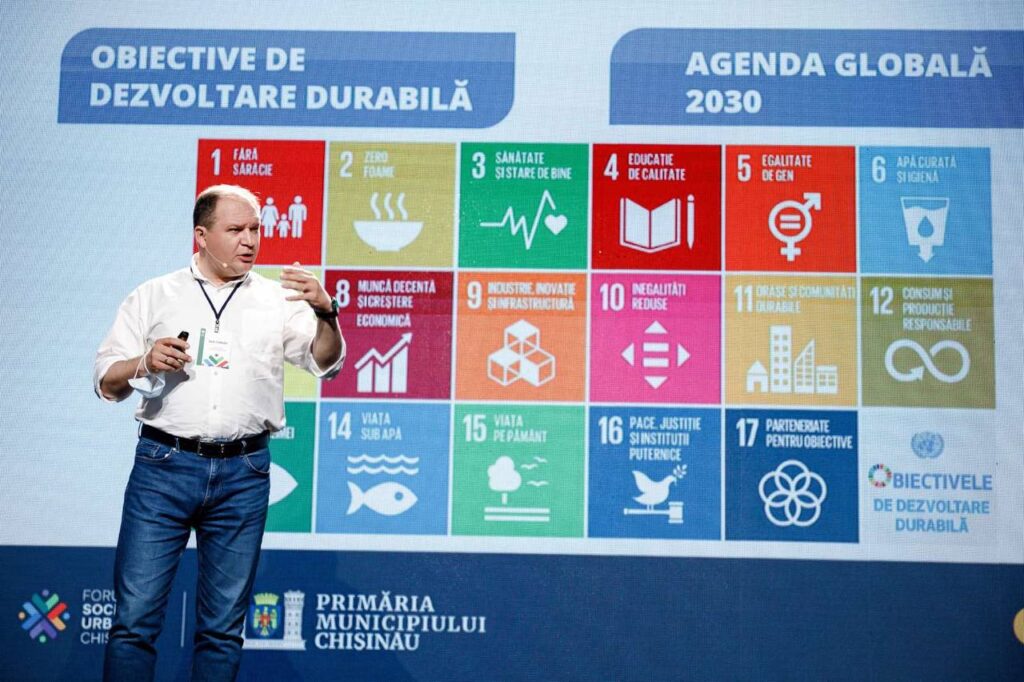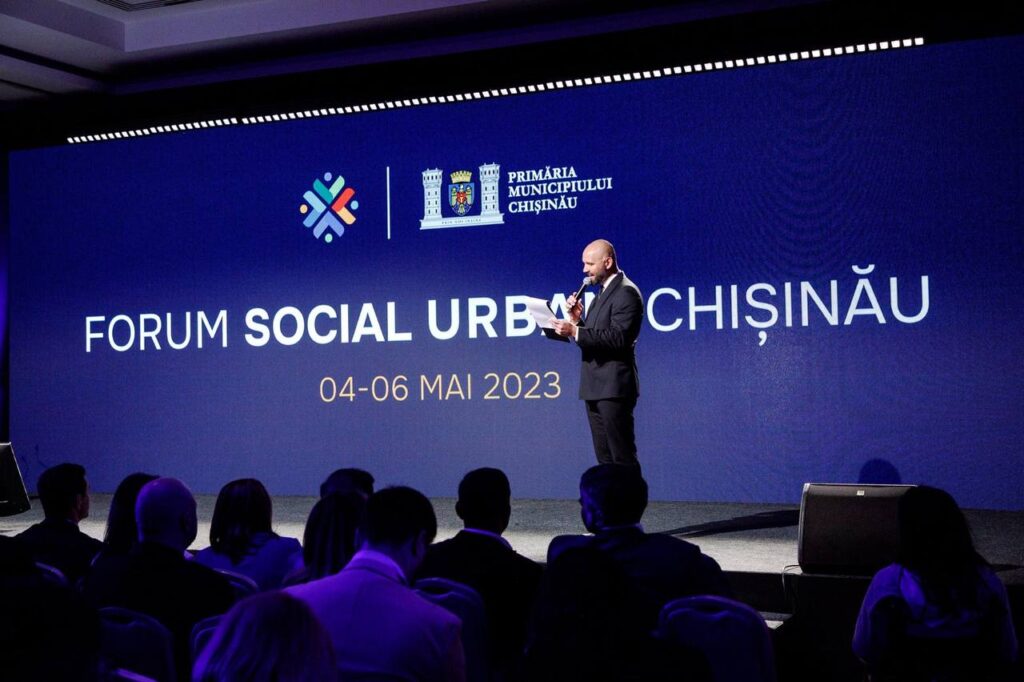The discussions on the first day of the event, attended by over 2 thousand people, focused on four directions of social development, aimed at guiding Chisinau towards transformation – into a healthier city, with access to quality, more inclusive, social services for people with disabilities, which provides opportunities for ongoing and energy-sustainable learning. The best practices on how the Capital can become a better city and what actions need to be taken to achieve these goals were discussed with experts and development partners.
At the opening of the forum, Ion Ceban, the General Mayor of the Capital, declared that despite the three major crises, which forced the municipality to restructure its actions and approaches, the Chisinau City Hall managed to develop new opportunities. These included the development of new services in various fields, the renovation, construction and creation of new educational, social and health spaces, the procurement of high-performance equipment, the rehabilitation of public spaces accessible to all citizens.

“We mostly relied on our own capabilities, as no one was prepared for any of the crises. None of us imagined that we could end up in such situations of fear, uncertainty and insecurity. But we have mobilized all the human potential we had to strengthen a system of efficient social services that meet the needs of all citizens”, said the mayor of the Capital.
The Deputy Mayor Angela Cutasevici said that these challenges united the community, making us rethink policies and support programs.
Within “Learning City” panel, Cutasevici reiterated that once Chisinau aspired to become an ongoing learning city, meaning to guarantee quality education and promote lifelong learning opportunities for all, more investments have been made to upgrade school and preschool infrastructure, to create lifelong learning opportunities, to digitize the educational system and to ensure a fair, safe, modern and inclusive study process.
Since the city of Chisinau recently became part of the international Network of Learning Cities, under the auspices of UNESCO Learning Cities, several representatives of the cities in the network attended the forum and shared their experience.
FOR THE MOST IMPORTANT NEWS, SUBSCRIBE TO OUR TELEGRAM CHANNEL!
William McAuliffe, co-chair of the Irish Network of Learning Cities suggested that there are several challenges to a city becoming a learning city. The development of a learning city requires a clear plan that provides a vision of what is to be achieved and defines the development objectives. In the absence of a plan, efforts can be fragmented and disparate, and results ineffective. Another challenge is that institutions work separately without proper coordination.
The municipality of Chisinau aims to join the WHO European Healthy Cities Network. In this context, during the “Healthy City” panel, the discussions focused on the objectives to achieve to place Chisinau on the list of the healthiest and happiest cities in the world.
Deputy Mayor Olga Ursu mentioned that the health system has to be transformed into a modern and accessible system for all the city’s inhabitants, in accordance with the goals of sustainable development and national development agendas. This goal can be achieved through universal coverage with health and social services accessible to all, the creation of new medical services, investments in health promotion and health literacy, and healthy urban planning, by creating the infrastructure for a healthy and active lifestyle.

Present at the event, the Coordinator of the Austrian Healthy Cities Network, Gernot Antes, gave an insight into the activities of the network, the concept of WHO healthy cities, but also about the advantages of belonging to such a structure.
The Inclusive City panel focused largely on including disadvantaged people and Ukrainian refugees. Deputy Mayor Ilie Ceban emphasized that the actions of the municipality in the last three years have been intensified to ensure equal access of all residents to social services, infrastructure, development opportunities and full participation in the life of the city.
In the context of the refugee crisis caused by the border war, Ko Do Hwan, executive director of Peace Winds Korea, offered valuable advice to increase the city’s resilience and crisis preparedness. He emphasized that maintaining a shelter is key to emergency disaster planning. Equally important is the identification of a local or international partner and the establishment of a centralized coordination mechanism.
During “Energy Efficient City” panel, Deputy Mayor Irina Gutnic emphasized that Chisinau City Hall has developed its own program and action plan to develop and implement energy efficiency projects and renewable energy sources, which aim to design and implement saving and conservation projects of energy, outsourcing of energy infrastructure, electricity production and energy supply, as well as risk management.
Invited to the panel, Dimitra Livadioti, Head of the Circular Economy Directorate of the municipality of Nea Smyrni, Greece, reported that the local public authority she represents is looking for individualized financial support for the development of climate and energy ideas.
In particular, he mentioned programs that have already been implemented and programs that are being implemented: the rehabilitation of a large portfolio of old buildings, through thermal insulation or the installation of photovoltaic housings, the replacement of municipal lighting with LED and automated lamps, the new sustainable urban mobility plan and waste management.

